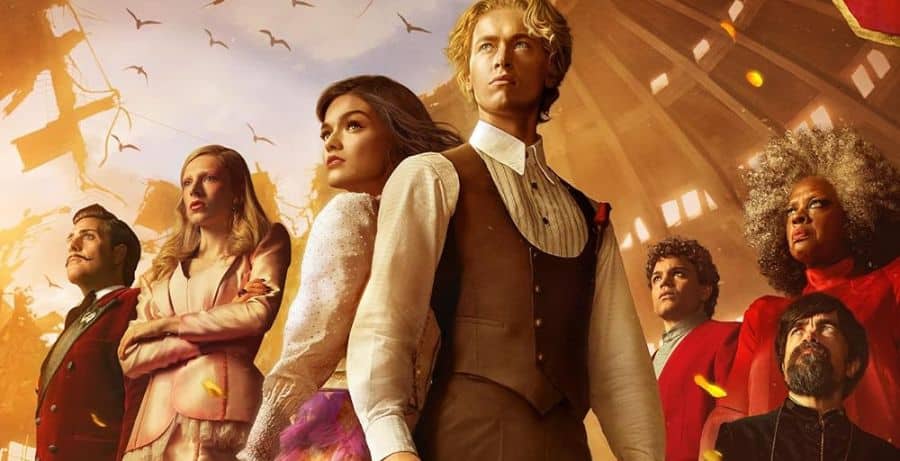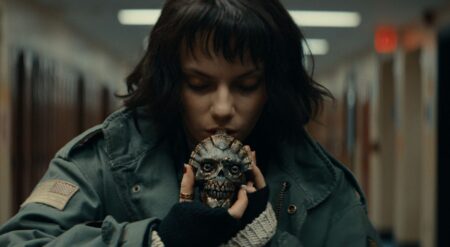The Hunger Games was and is a cultural touchstone. While simplistic, its narrative about collective punishment and revolution is one that aimed to teach its young adult audience about standing against authoritarianism even when you’re sure to die because of it. Sure, it was a similar take on a familiar topic, but it caught fire. However, much like the prequel book on which it is based, The Hunger Games: The Ballad of Songbirds & Snakes undercuts a legacy that defined an era of young adult literature in the United States.
Set in the world of The Hunger Games, written by Suzanne Collins and adapted into films that launched Jennifer Lawrence to stardom, The Ballad of Songbirds & Snakes, directed by Francis Lawrence and written by Michael Lesslie and Michael Arndt, centers on the villain from the previous story, Coriolanus Snow (Tom Blyth). Beginning just before the 10th annual Hunger Games, Coriolanus is a teen trying to fit in. He is poor but is trying to hide it. He is friends with Sejanus Plinth (Josh Andrés Rivera), the son of a rich doctor who came to the Capital from District 2 and still carries his home with him. While Sejanus is dedicated to speaking out against the Games in class and in front of leaders, Coriolanus is not. He is just focused on winning the Plinth prize during the Games, saving his family from poverty. Then he meets Lucy Gray Baird (Rachel Zegler), the girl tribute from District 12 and his mentee whom he is to coach to victory or, at the very least, to spectacle.
In three acts, defined in title cards throughout the film, The Hunger Games: The Ballad of Songbirds & Snakes brings the audience through Coriolanus’s view of the world. At first, he is selfish and set to make Lucy Gray win in order to take home the prize money he believes he deserves. As he grows to know her, he helps humanize the Tributes in front of The Capital, driving more views for the Games and bettering his chances. There is an air of self-serving suggestions that hovers around his instructions to gamemaster Dr. Volumnia Gaul (Viola Davis). At times, it feels like he is being shown as compassionate and empathetic. In some moments, we’re made to believe that he is seeing himself put into the place of the Districts.
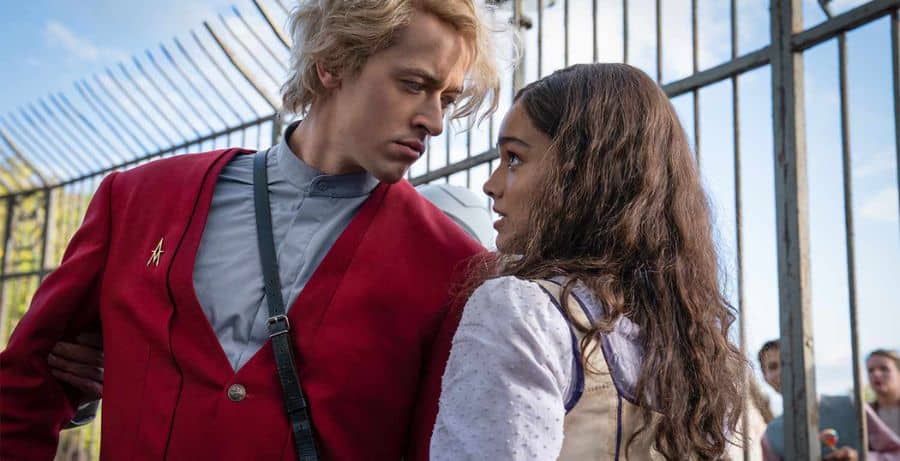
To tell a story about a villain, it’s clear that filmmakers and writers have not escaped the need to make them likable or sympathetic. Instead of presenting Coriolanus, who willfully chooses to stay in the Capital and enact collective punishment, starve, maim, and throw children into the Games, we’re made to think that he was pushed to this point. Like the Tributes fighting for their lives, The Hunger Games: The Ballad of Songbirds & Snakes wants us to believe that Coriolanus has transformed into the Snow we know through circumstance. Pushed is the optimal word, removing his agency in being able to execute those close to him.
The Hunger Games: The Ballad of Songbirds & Snakes utilizes the last two acts to showcase the Games, their visceral nature, and how some of the Tributes choose to keep their humanity lest it be stripped from them by the Capital, and others succumb to it. It’s the standard affair for the franchise, but the Tributes in this film have much more personality in much less time than some we met in the original saga, primarily Reaper (Dimitri Abold), who speaks little but whose actions carry the weight of the entire ethos the series used to profess.
When the film moves to its final act, we see an older Snow and an older Lucy Gray. United outside of the arena, this last act captures a story in and of itself so much so that it feels like an entirely different film in narrative weight, cinematography, and tone. This disconnect is jarring. When the film aimed to make moral judgments on moments and the people watching in the Capital, it was often cut sharply with humor that didn’t allow the audience to feel the gravity of the moral choices being made in each moment or how evil the nature of the Games is. Every element in the first two acts has some bit buried within it that doesn’t allow emotional layers to unfurl. In fact, The Hunger Games: The Ballad of Songbirds & Snakes feels both too short and too long. Each act feels truncated, missing key elements of the character connection. But simultaneously, the acts are so defined that the film just feels like it won’t end.
The third act of The Hunger Games: The Ballad of Songbirds & Snakes, however, hits, despite some shoehorned moments. Musically, it brings to life the melancholy of what you know will not be a happy ending. And Josh Andrés Rivera’s Sejanus shines in what he’s given to work with, to the point that you want more of him, to follow him, to see what he sees and how he sees it instead of Snow. But for the important narrative and commentary on doing what’s easy versus what’s hard, choosing people or choosing yourself, Snow’s distillation into a boy betrayed by his lover just feels too reductionist.
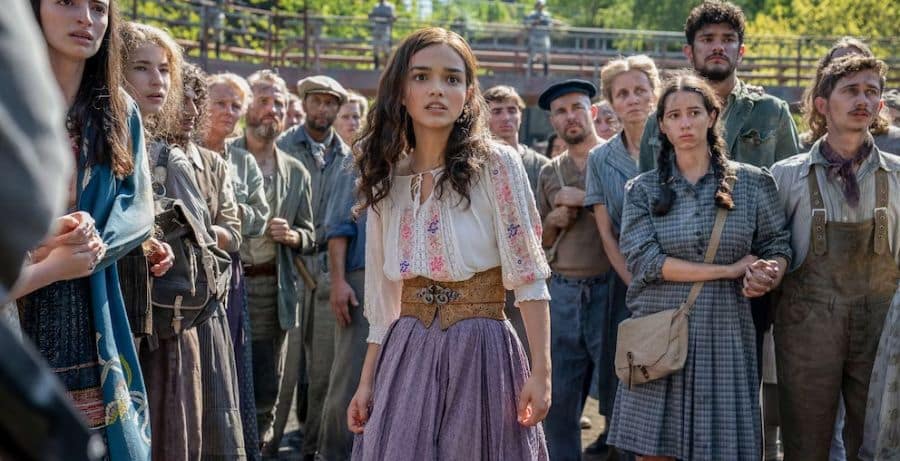
It’s as if to say that Snow becomes an authoritarian man of violence and control because he is not loved and not because of the choices he made. In that way, The Hunger Games: The Ballad of Songbirds & Snakes undercuts the legacy of the series by asking us to care for the man who harms many for selfish protection and to understand him. Even as we see him do evil in order to save himself, there is an element of compassion the audience is being asked to show him that feels wholly uncomfortable.
This is echoed in the love interest role that Lucy Gray is resigned to. She does what Snow says. She immediately falls for this man from the Capital set to watch her in the Games. She is just a shadow to be moved where he sees fit, with so little agency shown outside the very end of the film. Add in Zegler’s performance with an accent that can’t decide when it wants to be a drawl and when it wants to be a twang that stands so disparate from her singing voice that it isn’t very clear to hear, and Lucy Gray could have been so much more. Had we seen her perspective more, or even just her handling the trauma of her time in the Games instead of off-hand comments, there would have been a different outcome.
I firmly believe that media is a space for unpacking evil, for exploring villainy. But not every villain needs to be made that way. Some just exist. Instead of condemning Snow entirely, The Hunger Games: The Ballad of Songbirds & Snakes asks the audience to understand him and, in doing so, asks us to understand and find sympathy in how he became the violent man he is in The Hunger Games saga. By ending the film with Donald Sutherland‘s voice, who plays an adult Snow in the original films, the audience is reminded of who he becomes.
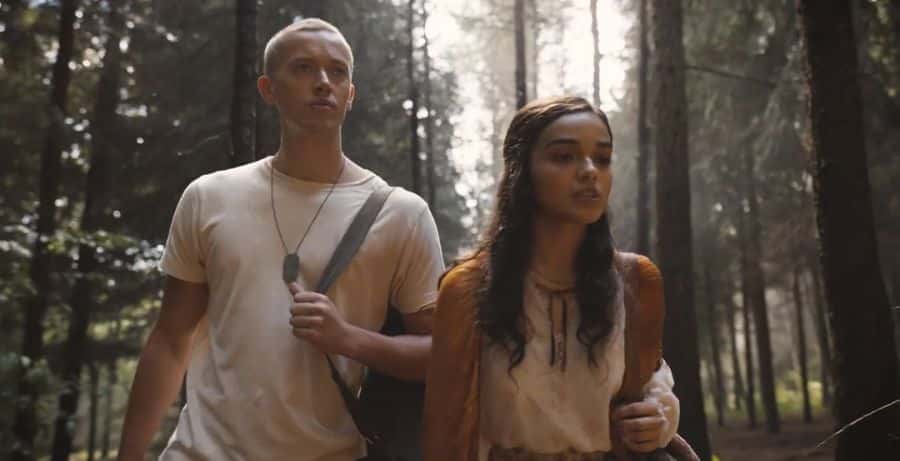
The Ballad of Songbirds & Snakes, for its jarring tonal shifts and frustrating pacing from one moral moment to the next, is a beautiful film. The constructed world and technology of Panem are intriguing to explore, and even Dr. Gaul’s lab, with all of its dangerous creatures, is something to marvel at. In addition to the visuals, the film’s soundtrack and Zegler’s songs are moving, especially when shown in context, and Zegler is allowed to amplify her presence outside of Snow. With that in mind, Viola Davis, Abold, Rivera, and Jason Schwartzman all deliver memorable performances and moments with their characters, doing the most with what they’re given.
But those few points of good can’t outweigh what a frustrating watch The Hunger Games: The Ballad of Songbirds & Snakes is for those who were drawn to the world of The Hunger Games because of its stance in favor of revolution and not falling in line.
The Hunger Games: The Ballad of Songbirds & Snakes is a shadow of the franchise that became a cultural touchstone. It’s an attempt to continue the story that captures the visuals of the last films but misses the moments of heart that tethered the audience to the characters. While the film shows us how the Capital got its citizens to invest in watching the Tributes pay for a war they never participated in with their lives, it never does that for the audience in the theater.
The Hunger Games: The Ballad of Songbirds & Snakes is available now on VOD.
The Hunger Games: The Ballad of Songbirds & Snakes
-
Rating - 4/104/10
TL;DR
The Hunger Games: The Ballad of Songbirds & Snakes is a shadow of the franchise that became a cultural touchstone.

